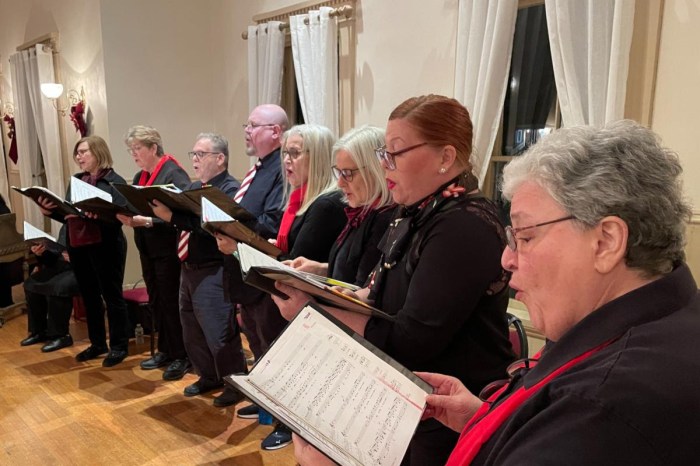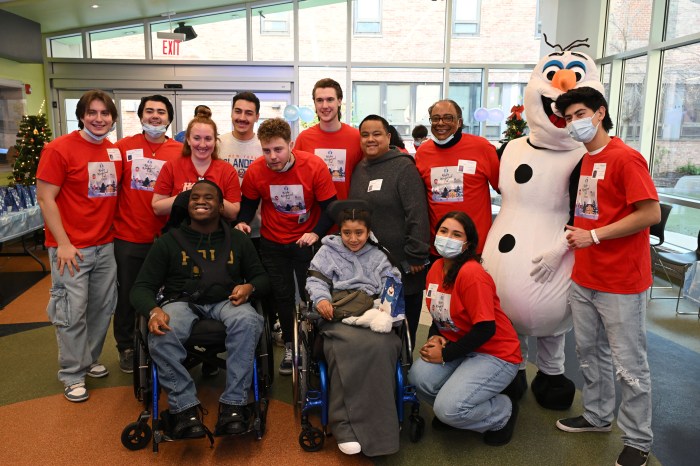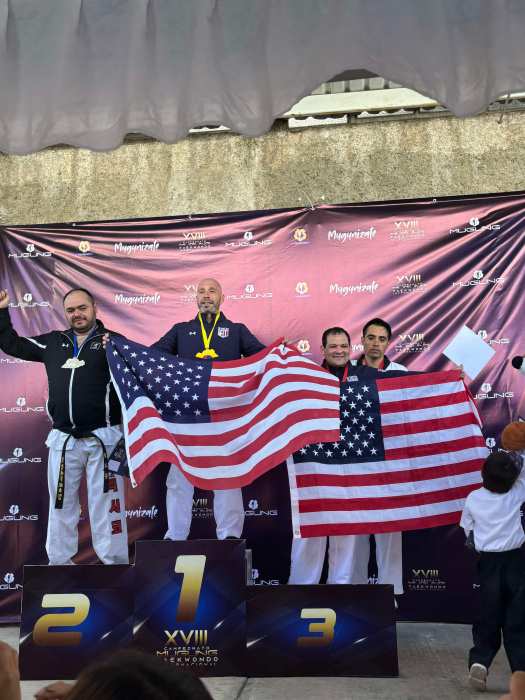Having experienced the worst of war, three atomic bomb survivors are telling horrifying tales to a new generation of listeners.
Students at Bayside High School got a lesson in bravery when three survivors of the Hiroshima bombing spoke at length about their memories of a day that defined their lives in the school’s library on Tuesday, May 4.
The survivors are part of Hibakusha Stories, a program designed to open the minds of young people to the inspiring stories of those who lived through Hiroshima and Nagasaki.
Kathleen Sullivan, Hibakusha program director and education consultant to the United Nations, said that the importance of hearing survivor stories cannot be overstated. According to Sullivan, the survivors’ advancing age makes their living history a diminishing resource.
“The farther we get from the reality of Hiroshima, the bigger the chance of missing out on the lessons,” said Sullivan. “Children should be taught the affects of nuclear war; hopefully this will spur them to become part of the consciousness of opposition to nuclear proliferation.”
The program’s tour is part of a month-long event that sees Hibakusha visiting 25 schools in the tri-state area. Sullivan hopes to impart knowledge to the students and thereby empower them to develop an educated opinion on nuclear weapons.
“We want children to become advocates for disarmament,” she said. “The only way to accomplish this is to visit and speak with them.”
Marc Cercone, social studies teacher at Bayside, said that the survivors provided the perfect source material for teaching history from the civilian perspective, rather than from those who were in power.
“The benefits of having living history is immense,” said Cercone. “We spend so much time teaching about war that we wanted to spend some time teaching about peace.”
Hiroshima survivors Tomoko Ueno, Toshiko Hamanaka and Koji Ueda each spent time separately speaking with a group of students to more intimately relate their childhood memories and their hopes for the future.
“My life’s work at this moment is to completely extinguish the possibility of nuclear weapons,” said Koji Ueda, who was four years old when Hiroshima was bombed. “I want to do what I can to make sure this never happens again.”

































